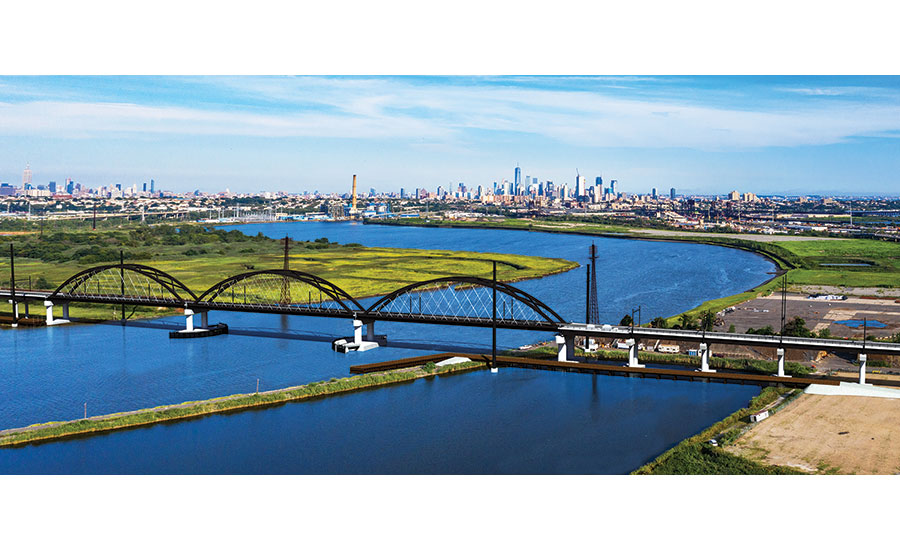Hoping to alleviate chronic problems with congestion, aging infrastructure and damage from Superstorm Sandy, New Jersey Transit is moving forward with a five-year, $17-billion capital plan and a first-time 10-year strategic plan—despite a $6-billion funding gap and lost revenue due to the pandemic.
New Jersey Gov. Phil Murphy (D) and NJ Transit president and CEO Kevin Corbett last month unveiled “NJT2030: A 10-Year Strategic Plan,” which the governor said “will address a decade-long period of disinvestment” under former Gov. Chris Christie (R). It includes rail, bus, bridge and power infrastructure with emphasis on state of good repair. Corbett, a former AECOM vice president, was appointed by Murphy in 2018 to head the agency that has struggled with aged infrastructure and incidents including a 2016 derailment that killed a woman and injured others.
“We are in critical condition here,” said Corbett. “We are putting out a clear vision of being a first-class agency again.” He noted that when he took the agency position, “there was no comprehensive plan” for capital projects. NJ Transit brought in experts from firms and other regional agencies including the New York Metropolitan Transportation Authority to assess facilities and create a strategic vision, he said.
The long-term goals are reliability and safety, customer experience, economic development, sustainability, innovation and inclusivity. The five-year plan includes big-ticket items such as a $1.18-billion, 9-mile extension of the Hudson Bergen light rail system, a $676-million replacement of the 117-year-old Newark Draw Bridge, a $2.9-billion upgrade of the Hoboken rail yard and a $454-million revamp of Newark Penn Station.
Associated Construction Contractors of New Jersey CEO Jack Kocsis Jr. stated the group’s members and “labor partners are strong supporters of NJ Transit’s capital plan.” He added that “although aspirational at this moment, future funding for the plans will create opportunities for contractors and skilled craftworkers to deliver much needed projects while contributing to New Jersey’s economy.”
Corbett says the agency is also pursuing a state of good repair in relationships with Amtrak, freight railroads and other NJ Transit system stakeholders. Improved relations with Amtrak has resulted in $2.3 billion in related work ongoing or out to bid, according to the executive.
Expressing confidence that ridership will come back, Corbett added that “the aim with these plans is to institutionalize them. Whatever political winds or budget issues, there will be a clear road map.”




Post a comment to this article
Report Abusive Comment